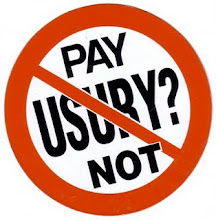Local Currencies to Replace the Dollar in Communities

by Flexo
"It may be illegal for states to print money for commerce, but local communities have no such restriction from the federal government. And in some communities, local currencies have been successful, at least in gaining the support of some retailers and consumers.
There’s no law of nature that says that an economy functions best when the broadest number of people use one currency exclusively. Currency is just a placeholder that creates efficiency. Without it, we’d have to barter for products and services. Without currency, a tailor would need to trade his services whenever he wanted to buy food for his family. In a free market, theoretically, anything could be used as a currency. The government or quasi-government organizations help by establishing a currency as a standard, so there is faith in its consistency.
Not everyone is satisfied with this solution, however.
A community may start its own currency for a few reasons:
Local currencies can help keep more funds invested in the community instead of helping national or global companies profit. When you buy a light bulb at Home Depot, part of that profit goes to the headquarters, and eventually shareholders, including global investors. When you buy a light bulb at a local hardware store whose owners live within the community, more of that profit stays in town — but not all unless the light bulb supplier and manufacturer is also in town.
When companies pay a part of their employees’ salaries in local currency, or when a consumer participates in a community marketplace by selling their items or services while taking payment in the local currency, the profit stays in the community.
A town or city bonded together by a unique currency builds the sense of community and encourages businesses to work together, not just for the greater economic benefit of the town, but to ensure that all consumers and retailers engaging in economic activity using the currency remain good citizens and fair businesses.
Local currencies present an alternative choice for people who believe the federal government cannot be trusted with the responsibility of ensuring economic stability through monetary policy. A community-based financial system can help people in the community feel better about threats of inflation or devaluation.
With local currency in hand, a customer will peruse the directory of merchants accepting the currency and make purchasing decisions based on this list, effectively ignoring companies whose profits benefit those outside the community.
In Philadelphia, the “equal dollar” is a local currency that has flourished for over a decade. Philadelphians can earn equal dollars by volunteering in the community or by selling items. There is a $10 (USD) membership fee and a =$50 (equal dollars) sign-up bonus for individuals; merchants can join for a $25 (USD) fee and receive a =$125 (equal dollars) bonus. It’s unclear how many merchants accept equal dollars, but those who do often require the bulk of the transaction to be in U.S. dollars.
This system isn’t too far removed from certain gift cards. Replace the idea of the community with a mall, and you’ll recognize the paradigm. One of my local indoor malls is owned by a national mall company. They offer gift cards that can be used in any store within any of this company’s branded malls. This is a currency as reliable as the U.S. dollar (as the value is denominated in dollars, not a separate currency of its own), but just like a local currency that ties its spending to the community, the gift cards tie spending to stores that pay rent for space in the mall properties.
Philadelphia is not the only community that has created its own currency to increase local solidarity. You can find local currencies in the Berkshire region of Massachusetts, Seattle, Portland, and Traverse City, Michigan.
I’d be concerned about counterfeit currency. Official government currency like the U.S. dollar is though to counterfeit effectively due to a large number of security measures, but it seems to me that this technology is not readily available to whatever printing services are used by communities that offer their own currency. Of course, since the U.S. dollar is incredibly popular, more counterfeiters aim at overcoming the security measures. Thus, popular currencies may be subject to fraud more than a community currency, but the concern still exists.
Would you use a local currency to replace some or all of your U.S. dollar use in your community?" (snip) ...
NOTE: This article is originally published at this website:
http://www.consumerismcommentary.com/local-currencies


0 Comments:
Post a Comment
<< Home